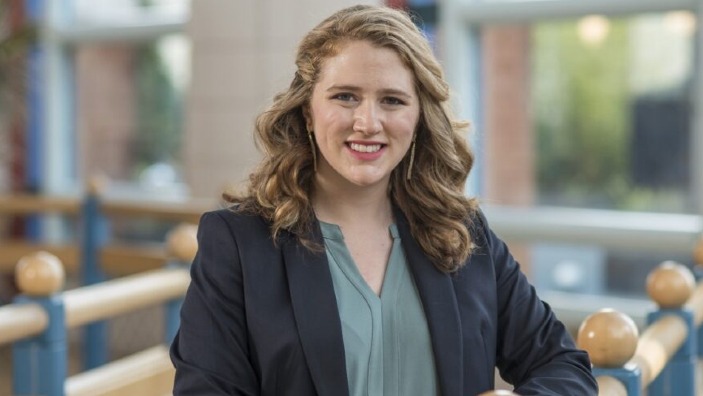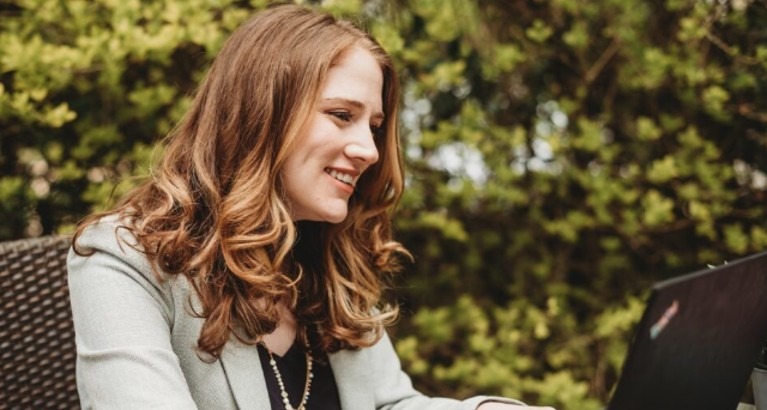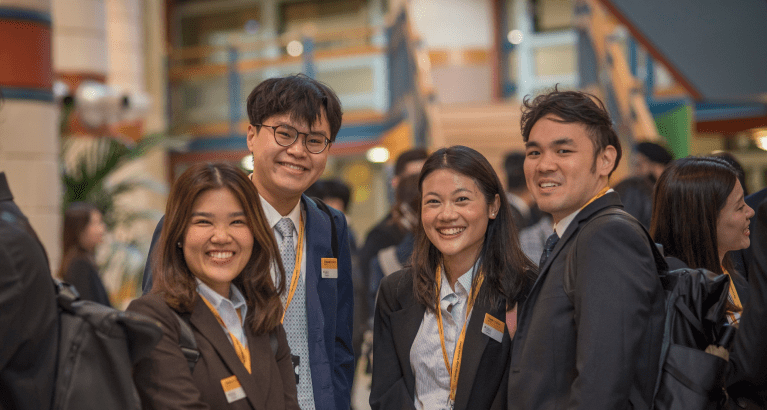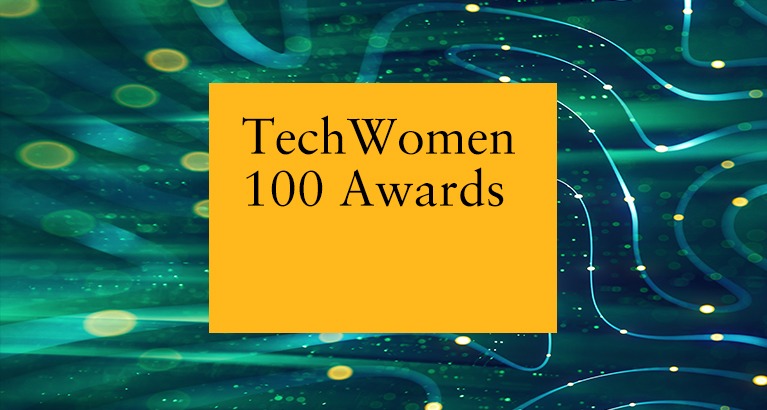Last year, just 15% of tech startups were founded by women, according to research by Startup Genome, with only 1.9% of venture capital in the US going to all-women teams, according to PitchBook.
While progress is being made, it’s clear there’s more to be done – so what’s it like working as a woman in the field, and how can we overcome the barriers? We asked award-winning entrepreneur Kaitlin Fritz about her experience as a female founder and business coach in the social impact sector, and how the MBA at Cambridge Judge helped boost her experience in entrepreneurship.
What’s your background and how did you become an entrepreneur?
I grew up in the USA and moved to the UK back in 2018. I was doing a masters in art history, and I was really passionate about making the arts more accessible. I realised we could do that through technology. I met my co-founder at a London hackathon, and her skills perfectly complemented mine. We co-founded Musemio, which is an edtech platform that allows children to explore culture and the arts through tech. I come from 2 generations of educators, so I think that passion for education has always been in my blood.

You also coach other entrepreneurs – what does this involve?
I started supporting other businesses on their own entrepreneurial journey during the pandemic. As a business coach, I’ve been able to support around 650 founders to grow, build and scale their impact-led ventures, and have built 5 global acceleration programmes for universities and not-for-profits. That’s been really rewarding – I’ve worked with founders from almost every continent, all of whom are doing incredible work to really change the narrative of entrepreneurship.
As a female founder, I’m incredibly passionate about supporting other women and those from marginalised backgrounds, and I’ve been able to support founders from many different regions of the world.
Have you encountered any challenges as a female founder in the tech space?
I think when I started out, there were some challenges working as a foreign female in tech and it’s still largely male dominated. Sometimes we’d have meetings, and it was only our male team members being addressed, and I’ve had to try to bolster our case in investment interviews. I’m hoping that’s getting better – I think we need to be wary of gender-washing, much like greenwashing, and ensure there’s genuine progress. But I do see more of my network, both on the investment and entrepreneurial sides, really empowering and amplifying female founders. There are so many great examples of female founders that have created amazing sustainable businesses and business models – but change takes time.
What have been the key challenges as an entrepreneur more generally?
Both my co-founder and I grew up outside the UK, so we had to navigate the London and UK entrepreneurship and investment scene as outsiders, which was a challenge! But having that outside perspective meant we were able to leverage international partnerships. Another big challenge was running a tech start-up during the pandemic – going into a complete lockdown here in the UK was very difficult for us. On the upside, more children being schooled at home meant we saw an uptick in the use of our products.
What made you decide to apply for the Cambridge MBA?
I decided to apply for the MBA at Cambridge Judge partly because of the University’s entrepreneurial roots – so much innovation is happening here in Cambridge, and I wanted to be part of it. As a founder with a non-traditional business background, I was really excited to get those firm foundations in areas such as accounting and social impact through enterprise. I was delighted to have been awarded an Entrepreneurship Scholarship from Cambridge Judge in 2021 after applying for the MBA.
How did you find the MBA programme?
The MBA was incredibly rewarding – not just from an academic standpoint, but also because our peer group was incredible. The MBA programme team and support on a personal level was also astounding. I had to take a leave of absence to take care of my father who was ill, and I got so much support throughout my journey.
I also gained many valuable skills – both hard skills like data analysis, statistics and financial analysis, and soft skills such as leadership and organisational management. What’s also great about the Cambridge MBA is it allows you to really dive deep, with opportunities to support other ventures as a mentor and learn from other entrepreneurs in the space. I led and spearheaded the class of 2021/22’s Entrepreneurship SIG (special interest group) with 2 other MBA students, which was a great experience. I also did my MBA Summer Project on innovating cancer treatment from a more empathetic and entrepreneurial perspective, which gave me the opportunity to reach out to some high-powered individuals across the UK and the USA.
You were featured on Forbes 30 under 30 Europe 2021 list – how did that feel?
It was such a huge honour to be included in the 2021 European list, and I’m still in shock – it really emboldened me to continue my entrepreneurial journey. That said, you can win awards and get nominations and they’re incredible, but it’s the head-down work in leading your own business that really matters.
How can we overcome the barriers for women in entrepreneurship?
I think the narrative around entrepreneurship needs to change. When I started out, you had the likes of Elon Musk and Jeff Bezos dominating – there was this kind of stereotypical American male, profit-centric entrepreneur. But for me, entrepreneurs are really the people going out there and actively solving problems and creating a positive impact in their community.
So, I think we should be highlighting more flavours of entrepreneurship, and that’s something I do on my podcast, ‘Everyday Entrepreneurship’. There are so many incredible people across the UK and across the world building social enterprise and charities, to various sizes and scales, and all of them embody entrepreneurship – so I think we need to spotlight those more.
What are your goals for the future?
On the MBA we were tasked with writing our own leadership mission for the future, and that really resonated with me. I think my personal mission is to empower individuals to combat the problems of tomorrow today, using entrepreneurial skills. Whether that’s starting a new venture, working on the VC side or focusing more on education, I’m very open to opportunities, and I’m really excited for what the future brings.
Related articles
Programme news
How Cambridge MBA students manage stress and wellbeing
The Cambridge MBA is intense by design. In just one year, students navigate rigorous coursework, build global networks, pursue career transitions and develop leadership skills, all whilst adapting to a new environment and often a new country. It's transformative but it's also demanding. That's why mental health and wellbeing support isn't an afterthought at Cambridge Judge Business School, it's embedded into the fabric of the programme.
Student and alumni news
TechWomen 100 awards for 2 Cambridge Judge alumna
Juliet Powell (MBA 2023) and Joey Deng (MPhil in Technology Policy 2020 ) were honoured by the TechWomen 100 Awards that recognise outstanding achievements of women in technology.
As the holiday season approaches, many applicants find it a useful moment to pause and reflect. Our MBA Admissions team shares some reminders to help guide you as you prepare your Cambridge MBA application.





